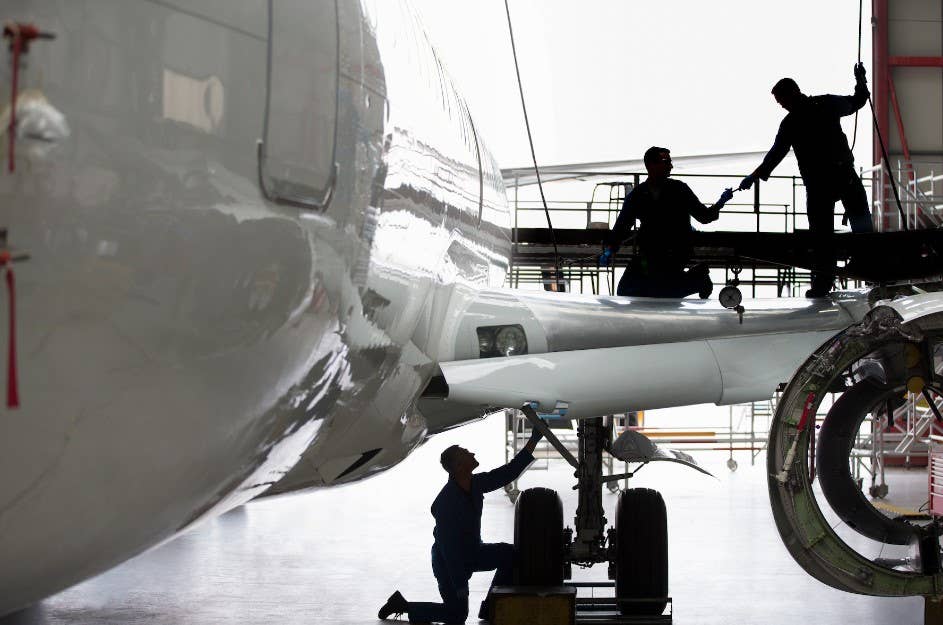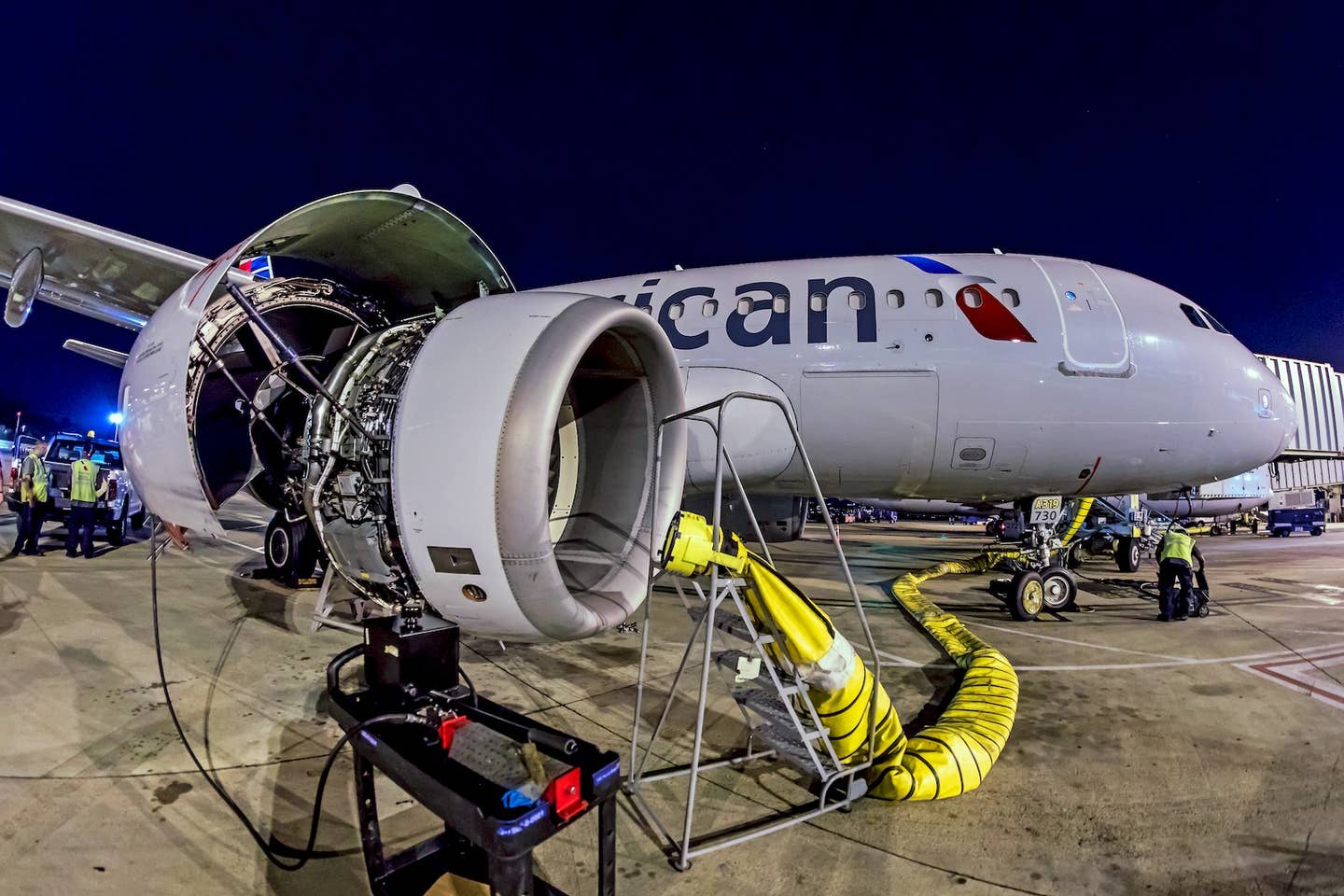AMT Jobs Could Be Part of Aviation’s Next Hiring Boom
Although pilot employment has been a hot topic in recent years, there is another field with growing prospects.

Mechanics work on an aircraft. [Credit: Shutterstock]
There has been a lot of talk about pilot hiring over the past few years. The post-pandemic era saw airlines hiring pilots in record numbers, but recruitment has slowed down in recent months.
Meanwhile, many airlines are actively hiring for one particular behind-the-scenes job. Aviation Maintenance Technicians (AMTs) are in high demand throughout the United States and around the world.
The U.S. Bureau of Labor Statistics anticipates four percent growth for aircraft and avionics mechanics through 2032. Aviation training company CAE projects a need for 138,000 AMTs by 2033. While only two out of the five largest U.S. airlines are currently hiring pilots, all of them are hiring AMTs.
AMTs play a critical role in the world of aviation and becoming one opens the door to a challenging and rewarding career. Here is what you need to know about being an Aviation Maintenance Technician:
What Is an AMT?
AMT is the term for a licensed aircraft mechanic in the United States. There are two ratings under the Federal Aviation Administration’s (FAA) certification for AMTs: airframe and powerplant. Most jobs require applicants to have both, with the term “A&P” (airframe and powerplant) often being used interchangeably with AMT.
What Do They Do?
The role of an AMT is wide-ranging. AMTs can work on any type of aircraft, ranging from small general aviation planes to widebody jumbo jets. Similarly, AMTs can perform maintenance of all parts of an aircraft. An AMT’s work can consist of anything from making a small pre-departure repair to an airliner at an airport gate to working on an engine overhaul in a hangar.
As a result, there are diverse career prospects for AMTs. While many choose to work for airlines, there are also opportunities to work for other employers like business and charter companies, government bodies, and maintenance contractors.
How Much Do They Make?
According to the Bureau of Labor Statistics, the median salary for aircraft mechanics in 2023 was $75,400. The median annual pay for those working at airlines was $101,500
How Do I Become One?
The FAA requires AMTs to meet a set of basic requirements before they can be licensed. Prospective AMTs must be at least 18 years of age and be fluent in English. In addition, they must meet either a training or experience requirement.
AMTs can meet the training requirement by graduating from an FAA-approved Aviation Maintenance Technician school or by completing the Joint Service Aviation Maintenance Technician Certification Council training course for military personnel.
Alternatively, they can demonstrate that they have had 18 months of practical work experience with airframes or powerplants or 30 months of experience with both systems.
After meeting these requirements, an AMT must pass three FAA exams (written, oral, and practical) before they can be licensed.
How Long Is AMT School?
Most AMT training programs are designed to be completed between 14 and 24 months. The exact length can depend on the program and student.
Students learn about a wide variety of topics to prepare them for their future careers. Upon completing AMT school, graduates can apply for the FAA AMT certification.
Editor’s Note: This article first appeared on AirlineGeeks.com.

Subscribe to Our Newsletter
Get the latest FLYING stories delivered directly to your inbox






